- Home
- Marie Ferrarella
Prescription for Romance Page 10
Prescription for Romance Read online
Page 10
Ramona had always thought that intelligent, cerebral types came in dull shades of brown and gray. After being at the institute just a short while, she realized that she was definitely going to have to reassess the way she thought.
Though extremely busy, Bonner had agreed to pause for a few minutes and answer “just a few of your questions.”
“A few is better than none,” Ramona responded cheerfully. “Let’s start with how the Armstrong Fertility Institute managed to entice you and Dr. Demetrios into leaving the university to join the staff here.”
His mouth quirked in a smile. “Paul Armstrong said we could have carte blanche at the institute. That no one would interfere with our research and all he asked was to be given updates whenever we felt there was something noteworthy to share.”
She noted that one of the lab technicians slowed her pace as she passed the good doctor. He was a heart stopper, all right, Ramona silently agreed.
“And how did this agreement with Mr. Armstrong differ from your previous employer?”
He laughed at the question. “The difference is like night and day. Previously, we were faced with a myriad of restrictions. It’s a wonder we made any progress at all.” Her puzzled look silently prompted him to elaborate. “Universities are very PC oriented. Or, more to the point, they’re very fearful of being sued for one reason or another. They had all sorts of restrictions, rules and protocols for us to follow. And the massive amount of paperwork we had to do took away from actual lab time,” he complained.
She watched his face for a telltale reaction as she stated her conclusion. “Then you and Dr. Demetrios must really be thrilled to be here.”
He averted his eyes, glancing at something on the table before him when he answered, “Close to it.”
Ramona read between the lines. “But?”
Again, he laughed. This time it was in self-deprecation. “Chance claims I wouldn’t be satisfied in heaven,” he said, referring to his research partner. “That I’d insist on rearranging the clouds if nothing else was off.”
She could feel her pulse rate increasing. It took effort to keep the excitement out of her voice. “And what’s off here?” she asked innocently.
He shifted his six-foot-four frame like a man who didn’t want to be pinned down just yet. “I’ve got some reservations about the lab’s protocols,” he replied vaguely.
Again her eyes caught his. Was he guarding a secret, or was he just in the beginning stages of formulating his suspicions? And if so, what was he suspicious of? “For instance?”
Bonner let the bait pass him by. “I need to do a little more research into that before I feel comfortable enough to be more specific.”
Damn it. So near and yet so far. She didn’t want to give up, but she knew that she couldn’t press too hard, either.
“It helps to talk things through,” she encouraged. “You know, kind of like brainstorming. Maybe it’s all just a misunderstanding….” Her voice trailed off as she mentally crossed her fingers.
But Bonner merely shrugged. “Maybe,” he allowed. She could tell by his tone that he wasn’t convinced—but he wasn’t about to say anything more, either. “But we each have our own way of doing things.”
“No argument there.” Although she’d dearly love to argue him out of this stance he’d taken. “Tell me, is it something that the institute has always done, or is it some new protocol?”
“Don’t know the answer to that, either,” Bonner admitted. “Most likely everything’ll be cleared up once I go through the archives—if I ever get the chance to get down there.” A timer went off, stealing his attention. Her time was up. “I’ve really got to get back to my work. If you’ll excuse me?”
It wasn’t a question, it was a statement, meant to politely usher her out.
Bonner obviously didn’t want anyone looking over his shoulder as he worked, she thought. She could understand that.
“Of course.” She closed the black leather-bound notebook she’d been taking notes in. “And thank you for your time.”
But she was already talking to the back of his head as Bonner went to retrieve material from an incubator. Ramona quietly slipped out of the lab, passing several more techs scurrying about like mice.
The archives again, she thought as she got on the elevator. This just reinforced her desire to get into that basement room.
She was working on that, pressing for the first floor. She’d done her very best to be seen by as many people as she could so that everyone would come to regard her as a fixture here and wouldn’t question her presence anywhere within the institute. Like the archives. It was time for her to find out just how she went about getting access to it.
Instead of going to her office when she got off on the first floor, Ramona took a detour and stopped by the medical clinic. Pushing open one of the glass doors, she walked into the waiting area. The large room was crowded to the limit with couples who were returning for procedures, there for counseling or coming in for the first time.
Looking at them, Ramona found that she couldn’t tell one set from the other. Everyone had basically the same kind of expression, the kind of expression found on the faces of children on Christmas Eve, as they stared up at the skies and hoped that magic would briefly touch their lives and make their fondest wish come true.
“Lost?”
The softly voiced question came from behind her. She turned to see the clinic’s receptionist sitting at her desk, watching her.
Wilma Goodheart had been at the institute practically from the very beginning and now, with the senior Dr. Armstrong gone, she regarded herself as its resident expert and historian. In her late fifties, she was the picture of the eternal, ever-efficient secretary.
“No, actually, I’m not,” Ramona said, turning completely around to face her. “I came to ask you a question.” Had Wilma not been loyal to a fault when it came to Gerald Armstrong and, by extension, his family, she would have actually had a ton of questions to ask the older woman. But since Wilma was loyal, she knew she would get nothing out of her that even hinted at the institute’s secrets. “If I wanted to get some information from the archives, how would I go about it?” she asked, keeping her expression as innocent-looking as possible.
“You’d need a pass card to access the records room.”
That sounded simple enough. But Ramona knew better than to be too confident. She took another tentative step across the semifrozen lake. At any moment, the older woman could grow suspicious and refuse to answer. “How do I get one of those?”
Wilma pursed her lips, something she always did when she was thinking. “What is it you want from there? Maybe I could—”
Ramona was quick to cut the woman off. “I don’t want to impose on anyone. Besides, I’m not sure I know what I’m looking for yet.”
Wilma scrutinized her, a hint of suspicion entering her brown eyes. “Then how will you know if you found it?”
“I’ll know,” Ramona told her with certainty. “It’s just background information,” she quickly added. “Maybe even the name of Dr. Gerald’s first patient—”
“That’s confidential,” Wilma told her firmly. “I’m surprised that working in public relations, you don’t know that.”
“I’d use another name,” she quickly assured the woman. “Maybe call her Patient One, something like that. But I’d want to see what she went through and how that was different from the procedures that are being used now.” Ramona looked at the older woman who had willingly married herself to her work, clearly feeling that the institute was doing something extraordinarily good. Judging by the way Wilma’s face relaxed, she’d found the right angle, Ramona thought.
“I just want to immerse myself in the institute’s history. If I’m to do the Armstrong institute any good, I have to know everything about it first,” she explained.
Wilma said nothing for a moment, then slowly nodded. “I suppose you have a point.” She opened her middle drawer and took something out. She held o
ut a plastic card. “I have an access card.”
Though she wanted to snatch it, Ramona restrained her impulse. Her hand remained at her side. “That’s good to know.”
Wilma looked at her, confused. “You don’t want the card?”
More than you could possibly know. Out loud, she continued with her charade. “Not at the moment. I need to get a list of questions together first so I don’t wind up spending a weekend in there. But I’ll gladly take you up on your kind offer when I’m ready.”
Wilma put the card back in its place and shut the drawer. “Fair enough.”
Ramona walked out of the clinic smiling to herself. This way, if the topic should come up, Paul’s trusted receptionist could tell him that she’d been in no hurry to run off to the basement and go rifling through the archives.
Her plan was to wait until Friday, take Wilma’s access card and then go down after everyone had left for the weekend. She wanted to go through the files at her leisure, without worrying that someone might walk in on her.
Ramona didn’t bother to attempt to tamp down her excitement.
Hang on just a little bit longer, Mom. If there’s someone out there with your DNA, I’ll find them. I promise.
Paul glanced at his watch as he came to the end of the report he’d been working on. The same report he’d been struggling with for the past few days, that had kept him prisoner in his seat because he’d vowed he wasn’t going to go home until he finished it, even if it was Friday night.
As if Friday nights were different from any other night, he mocked himself. He’d long ago sacrificed any kind of social life to make sure that the institute remained on the cutting edge of its field.
This meant at times having to wade through myriad rules and regulations. It was enough to make a man permanently cross-eyed.
He made a few notations, then sat back in his chair and sighed. Well, the report was finally finished. It wasn’t an outstanding piece of work, but it was finished.
Wanting to go, Paul forced himself to quickly reread the document.
Which was a good thing because on the third page, he came to a glaring empty space. That was when he remembered that he’d deliberately left the blank area to remind himself that he needed a particular set of statistics to hammer home his point. A set of statistics that weren’t readily accessible because it had been bundled up with a large set of “precomputer” data and deposited in the room where they kept the rest of the files and folders that had not been input or scanned into the database.
Paul blew out a breath. He was tired and hungry. Monday was soon enough for him to go down there and retrieve the information.
No, he contradicted himself in the next moment. That would be putting things off, and he knew he’d spend the weekend being haunted by the omission until he finally came in on Monday morning and got the missing data he needed.
He might as well get it over with and do it tonight, Paul told himself. Otherwise, he was going to wind up sacrificing his weekend.
What weekend? he mocked himself. The only thing that made the following two days different from the five he’d just been through was that some of the time, he didn’t come back into his office at the institute.
Well, if you did something about this attraction you’re feeling for Ramona, maybe you’d finally have a social life.
Paul shook his head, pushing down his thoughts.
Opening his desk drawer, he took out the white plastic card he needed to gain access to the archives, picked up his briefcase and walked out of his office.
The lights in the building had been dimmed. It felt exceptionally lonely, he mused as he walked down the corridor to the elevator.
The sound of the car’s arrival seemed amplified against the wall of silence. He got on and pressed the button for the basement.
Getting off the elevator, he turned right and made his way down the winding corridor. The lighting here was even dimmer than on the other floors. His destination had originally been used as a bank vault. When his father had bought the property for the institute, he’d had the existing building demolished, but he’d left the vault. Keeping it intact appealed to him for reasons the man never went into and no one—except his mother—even questioned that he’d seen fit to retain it.
When he reached the reinforced-steel door, he was about to slide his card through the slot when he saw that it wasn’t necessary. The door was standing ajar.
The hairs on the back of his neck instantly rose. Who could be here at this hour? He debated calling 911, but decided to hold off in case it was one of the staff members who had access to the archives. He needed to check this out further.
Cautiously, Paul slipped in as silently as he could. Putting down his briefcase, he slowly crept toward the back of the vault where the files were actually kept. His father had taken an active part in designing the three-story building that was now the institute, and these plans had extended to renovating the vault, as well.
Gerald Armstrong had insisted that it not only have its own source of power, but a backup generator as well in case the city suffered another massive power failure like the one that had thrown the East Coast into darkness decades ago. In addition, he’d authorized that a very small powder room be added, as well. It was because of this last touch that the institute’s “unique file room” had been the subject of more than one magazine article.
As he made his way in, Paul could have sworn he heard someone moving around in the center of the vault. Again he wondered who could be down here at this hour.
And then he had his answer.
There, directly in front of him, was Ramona Tate. She was taking pictures with what looked like the world’s tiniest camera.
Paul was stunned. Was she spying on them? Collecting data for another fertility organization?
Even as the questions occurred to him, Paul felt anger bubbling up inside.
“What do you think you’re doing, Ramona?” he demanded, coming forward.
Her nerves already pulled so taut that they were ready to break at any moment, Ramona’s heart instantly flew into her throat. She screamed as she swung around. And then, when she saw that it was Paul, she breathed a sigh of relief.
Relief, however, was short-lived.
“I said, what do you think you’re doing here?” he repeated. This time his voice was unnervingly cold and hard.
It took her a moment to collect herself. Always go with the truth as your foundation. Ramona sincerely believed that. It made for fewer mistakes in the long run.
She looked at him as if to silently say that was self-explanatory. “I’m just going through the files in the archives.”
“You’re photographing them,” he pointed out angrily. “Why?”
She had an answer prepared for that, too. “So I don’t have to come back again. This way, I can read through them upstairs instead of in this tiny, cramped space.”
Because weakness of any kind embarrassed her, she didn’t add that she was a claustrophobic. While closed-in places did not cause her to assume a fetal position, the sooner she was out of here, the better. That was one of the reasons she’d left the door open. She wanted to feel air coming in even though, logically, that was impossible, given her position.
“But why are you going through the files in the archives?” These were mostly patient folders and trials that belonged to his father. He didn’t know what was in each file, but his protective instincts definitely kicked in. He might have never been close to the man, but he didn’t want to see his father’s name dragged through the mud, either.
“I’m preparing a piece on the institute—” She stopped and looked at him, slightly puzzled. “I must have told you that. Anyway, I just need a little history for background information. You know, how your father didn’t give up despite X amount of false starts and near misses.”
Paul picked up one of the folders she’d just been photographing and read the label across it. “You’re in the patient files.”
�
�It’s a personal story,” she replied, unfazed. “Don’t worry, I’ll change the names to protect the parties involved.”
But Paul shook his head as he replaced the folder. “No, you won’t.”
Did he think she was that careless? “Yes, I will,” she insisted.
“No, you won’t, because you’re not going to go through any more of the files,” he told her firmly. “And you’re not going to use the information from the ones you already photographed.”
She still hadn’t found her mother’s file, but she knew it had to be here somewhere. She’d been down here for the past two hours and felt that she was getting close. All she needed was a few more minutes to find it. But he wasn’t going to give her those minutes, she knew, looking at the set of Armstrong’s jaw. She was going to have to come back later and it would undoubtedly be harder for her to get in. That really frustrated her.
“Why?” It was her turn to challenge him. “What are you afraid I’m going to find here?” The moment the words were out of her mouth, she realized that she’d pressed his buttons. Obviously he didn’t like having his orders questioned.
“I think that’s about enough. I want you to leave now. We’ll discuss this on Monday.” The tone he used promised that there would be no discussion, only a lecture. And he’d be the one giving it.
There was no point in arguing with him. He wasn’t about to give in. She was just going to have to find an excuse to get back here and find her mother’s file. She didn’t care what it took.
For now, Ramona gave him a small salute. “You’re the boss, Doctor,” she told him.
He thought he detected a hint of mockery in her voice. “Yes, I am,” he answered curtly.
She began to walk away. He was right behind her. Did he think she was going to make a mad dash back? “Are you planning on following me?” she wanted to know.
He was tired. He could definitely come back for the statistics he needed on Monday. The report he’d worked on wasn’t about to go anywhere over the weekend.

 Colton Baby Conspiracy (The Coltons 0f Mustang Valley Book 1)
Colton Baby Conspiracy (The Coltons 0f Mustang Valley Book 1) Cowboy's Rescue (Colton 911 Book 1)
Cowboy's Rescue (Colton 911 Book 1) Bridesmaid For Hire (Matchmaking Mamas Book 23)
Bridesmaid For Hire (Matchmaking Mamas Book 23) Secrets of Forever
Secrets of Forever Fortune's Greatest Risk (The Fortunes 0f Texas: Rambling Rose Book 4)
Fortune's Greatest Risk (The Fortunes 0f Texas: Rambling Rose Book 4) Cavanaugh Cowboy
Cavanaugh Cowboy Colton 911: Secret Defender
Colton 911: Secret Defender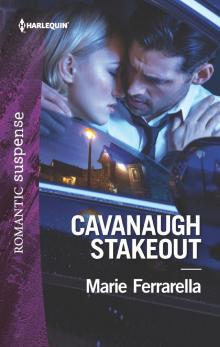 Cavanaugh Stakeout
Cavanaugh Stakeout The Late Bloomer's Road to Love
The Late Bloomer's Road to Love Colton 911--The Secret Network
Colton 911--The Secret Network An Unexpected Father
An Unexpected Father The Lawman's Romance Lesson (Forever, Tx. Series Book 20)
The Lawman's Romance Lesson (Forever, Tx. Series Book 20) Coming to a Crossroads
Coming to a Crossroads Colton 911: Cowboy's Rescue
Colton 911: Cowboy's Rescue Summer of Love
Summer of Love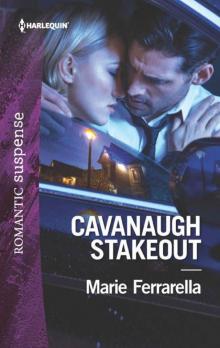 Cavanaugh Stakeout (Cavanaugh Justice Book 41)
Cavanaugh Stakeout (Cavanaugh Justice Book 41) Texan Seeks Fortune
Texan Seeks Fortune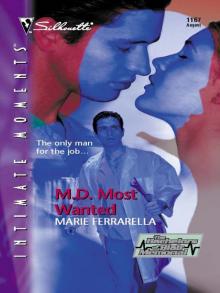 M.D. Most Wanted
M.D. Most Wanted Cavanaugh In Plain Sight (Cavanaugh Justice Book 42)
Cavanaugh In Plain Sight (Cavanaugh Justice Book 42) The Law and Ginny Marlow
The Law and Ginny Marlow Bridesmaid for Hire
Bridesmaid for Hire A Match for the Doctor
A Match for the Doctor The Sheriff’s Christmas Surprise
The Sheriff’s Christmas Surprise Colton's Secret Service
Colton's Secret Service A WEDDING FOR CHRISTMAS
A WEDDING FOR CHRISTMAS A Cavanaugh Christmas
A Cavanaugh Christmas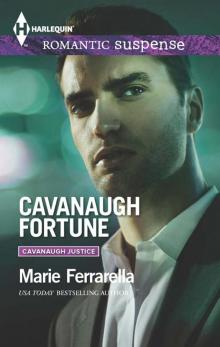 Cavanaugh Fortune
Cavanaugh Fortune The 39-Year-Old Virgin
The 39-Year-Old Virgin Coming To A Crossroads (Matchmaking Mamas Book 24)
Coming To A Crossroads (Matchmaking Mamas Book 24) Cavanaugh's Missing Person
Cavanaugh's Missing Person Cavanaugh on Call
Cavanaugh on Call The M.D.'s Surprise Family
The M.D.'s Surprise Family Angus's Lost Lady
Angus's Lost Lady Her Red-Carpet Romance
Her Red-Carpet Romance Choices (A Woman's Life)
Choices (A Woman's Life) Prescription for Romance
Prescription for Romance A Perfectly Imperfect Match (Matchmaking Mamas)
A Perfectly Imperfect Match (Matchmaking Mamas)![[Kate's Boys 04] - Travis's Appeal Read online](http://i1.bookreadfree.com/i/03/21/kates_boys_04_-_traviss_appeal_preview.jpg) [Kate's Boys 04] - Travis's Appeal
[Kate's Boys 04] - Travis's Appeal Secret Agent Affair
Secret Agent Affair The Cowboy's Lesson in Love
The Cowboy's Lesson in Love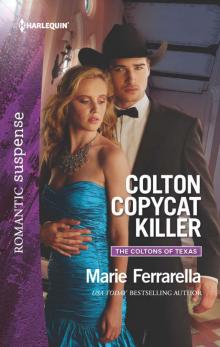 Colton Copycat Killer
Colton Copycat Killer A Small Fortune
A Small Fortune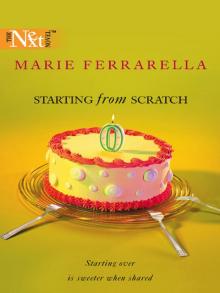 Starting from Scratch
Starting from Scratch Her Forever Cowboy
Her Forever Cowboy Colton Showdown
Colton Showdown Crime and Passion
Crime and Passion The Heart of a Ruler
The Heart of a Ruler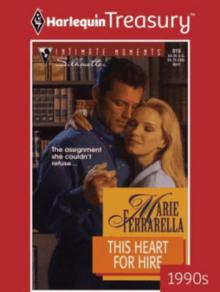 This Heart for Hire
This Heart for Hire A Forever Kind of Hero
A Forever Kind of Hero Special Agent's Perfect Cover
Special Agent's Perfect Cover The Baby Beneath the Mistletoe
The Baby Beneath the Mistletoe A Maverick and a Half
A Maverick and a Half The Doctor's Guardian
The Doctor's Guardian Cavanaugh Undercover
Cavanaugh Undercover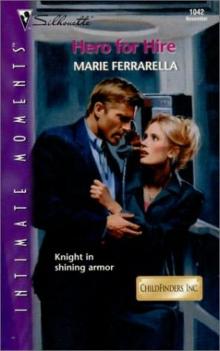 Hero for Hire
Hero for Hire Fortune's Heirs: Reunion
Fortune's Heirs: Reunion How to Seduce a Cavanaugh
How to Seduce a Cavanaugh The Heiress’s 2-Week Affair
The Heiress’s 2-Week Affair Twice a Hero, Always Her Man
Twice a Hero, Always Her Man My Spy
My Spy An Engagement for Two
An Engagement for Two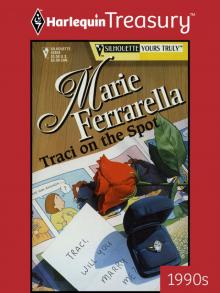 Traci On The Spot
Traci On The Spot Carrying His Secret
Carrying His Secret In Broad Daylight
In Broad Daylight Cavanaugh Cold Case
Cavanaugh Cold Case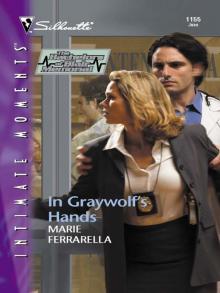 In Graywolf’s Hands
In Graywolf’s Hands The Baby Mission
The Baby Mission Real Vintage Maverick
Real Vintage Maverick Twins on the Doorstep
Twins on the Doorstep Cowboys Are For Loving
Cowboys Are For Loving Heart of a Hero
Heart of a Hero The Cowboy's Christmas Surprise
The Cowboy's Christmas Surprise Cavanaugh’s Woman
Cavanaugh’s Woman Sundays Are for Murder
Sundays Are for Murder Mission: Cavanaugh Baby
Mission: Cavanaugh Baby Cavanaugh Strong
Cavanaugh Strong Wish Upon a Matchmaker
Wish Upon a Matchmaker Dangerous Games
Dangerous Games What the Single Dad Wants...
What the Single Dad Wants... Rough Around the Edges
Rough Around the Edges Cavanaugh Judgment
Cavanaugh Judgment Cavanaugh Watch
Cavanaugh Watch Cavanaugh's Secret Delivery
Cavanaugh's Secret Delivery The Pregnant Colton Bride
The Pregnant Colton Bride Let's Get Mommy Married
Let's Get Mommy Married Searching for Cate
Searching for Cate A Forever Christmas
A Forever Christmas Dangerous Disguise
Dangerous Disguise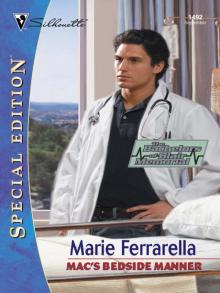 Mac’s Bedside Manner
Mac’s Bedside Manner Cavanaugh Pride
Cavanaugh Pride The Fortune Most Likely To...
The Fortune Most Likely To... Internal Affair
Internal Affair A Second Chance for the Single Dad
A Second Chance for the Single Dad The Cavanaugh Code
The Cavanaugh Code Sapphire and Shadow (A Woman's Life)
Sapphire and Shadow (A Woman's Life)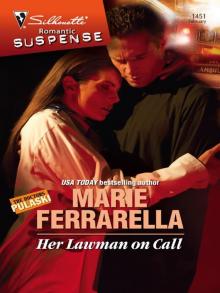 Her Lawman on Call
Her Lawman on Call A Dad At Last
A Dad At Last Her Right-Hand Cowboy (Forever, Tx Series Book 21)
Her Right-Hand Cowboy (Forever, Tx Series Book 21) Cavanaugh Heat
Cavanaugh Heat![[Ladera by the Sea 01] - A Wedding for Christmas Read online](http://i1.bookreadfree.com/i1/03/27/ladera_by_the_sea_01_-_a_wedding_for_christmas_preview.jpg) [Ladera by the Sea 01] - A Wedding for Christmas
[Ladera by the Sea 01] - A Wedding for Christmas Lassoing the Deputy
Lassoing the Deputy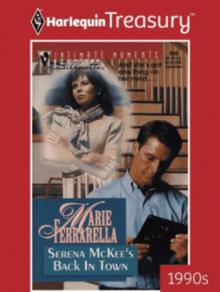 Serena Mckee's Back In Town
Serena Mckee's Back In Town A Baby on the Ranch: A Baby on the RanchRamona and the Renegade
A Baby on the Ranch: A Baby on the RanchRamona and the Renegade One Plus One Makes Marriage
One Plus One Makes Marriage Protecting His Witness
Protecting His Witness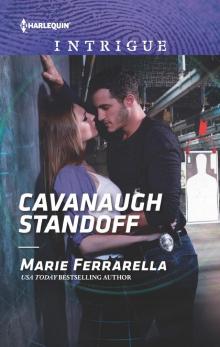 Cavanaugh Standoff
Cavanaugh Standoff The Baby Came C.O.D.
The Baby Came C.O.D. The Setup
The Setup Texas Rose
Texas Rose Three Marie Ferrarella Romances Box Set One
Three Marie Ferrarella Romances Box Set One The Lawman's Romance Lesson
The Lawman's Romance Lesson Desperately Seeking Twin...
Desperately Seeking Twin...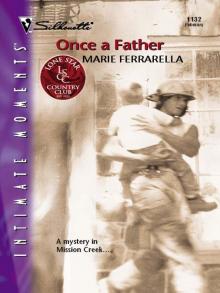 Once a Father
Once a Father![[The Sons of Lily Moreau 02] - Taming the Playboy Read online](http://i1.bookreadfree.com/i/03/25/the_sons_of_lily_moreau_02_-_taming_the_playboy_preview.jpg) [The Sons of Lily Moreau 02] - Taming the Playboy
[The Sons of Lily Moreau 02] - Taming the Playboy Lily and the Lawman
Lily and the Lawman Cavanaugh's Surrender
Cavanaugh's Surrender The Cowboy and the Lady
The Cowboy and the Lady Innkeeper's Daughter
Innkeeper's Daughter A Bachelor and a Baby
A Bachelor and a Baby![[The Sons of Lily Moreau 03] - Capturing the Millionaire Read online](http://i1.bookreadfree.com/i1/03/31/the_sons_of_lily_moreau_03_-_capturing_the_millionaire_preview.jpg) [The Sons of Lily Moreau 03] - Capturing the Millionaire
[The Sons of Lily Moreau 03] - Capturing the Millionaire Because a Husband Is Forever
Because a Husband Is Forever Diamond in the Rough
Diamond in the Rough The Doctor's Forever Family
The Doctor's Forever Family A Lawman for Christmas
A Lawman for Christmas Cavanaugh Rules: Cavanaugh RulesCavanaugh Reunion
Cavanaugh Rules: Cavanaugh RulesCavanaugh Reunion Baby Times Two
Baby Times Two![[The Sons of Lily Moreau 01] - Remodeling the Bachelor Read online](http://i1.bookreadfree.com/i1/04/02/the_sons_of_lily_moreau_01_-_remodeling_the_bachelor_preview.jpg) [The Sons of Lily Moreau 01] - Remodeling the Bachelor
[The Sons of Lily Moreau 01] - Remodeling the Bachelor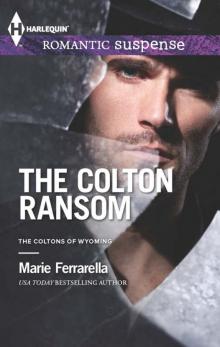 The Colton Ransom
The Colton Ransom Mendoza's Secret Fortune
Mendoza's Secret Fortune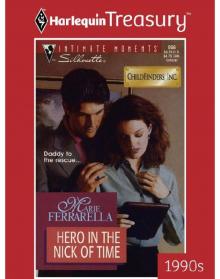 Hero in the Nick of Time
Hero in the Nick of Time![[Kate's Boys 03] - Mistletoe and Miracles Read online](http://i1.bookreadfree.com/i1/04/02/kates_boys_03_-_mistletoe_and_miracles_preview.jpg) [Kate's Boys 03] - Mistletoe and Miracles
[Kate's Boys 03] - Mistletoe and Miracles The Man Who Would Be Daddy
The Man Who Would Be Daddy Fortune's Second-Chance Cowboy
Fortune's Second-Chance Cowboy Coming Home for Christmas
Coming Home for Christmas Her Special Charm
Her Special Charm The Baby Wore a Badge
The Baby Wore a Badge Perfect Wyoming Complete Collection: Special Agent's Perfect Cover ; Rancher's Perfect Baby Rescue ; A Daughter's Perfect Secret ; Lawman's Perfect Surrender ; The Perfect Outsider ; Mercenary's Perfect Mission
Perfect Wyoming Complete Collection: Special Agent's Perfect Cover ; Rancher's Perfect Baby Rescue ; A Daughter's Perfect Secret ; Lawman's Perfect Surrender ; The Perfect Outsider ; Mercenary's Perfect Mission Montana Sheriff
Montana Sheriff Fiona And The Sexy Stranger
Fiona And The Sexy Stranger Military Man
Military Man Dating for Two (Matchmaking Mamas)
Dating for Two (Matchmaking Mamas) Cavanaugh Encounter
Cavanaugh Encounter In His Protective Custody
In His Protective Custody A Small Town Thanksgiving
A Small Town Thanksgiving Wanted: Husband, Will Train
Wanted: Husband, Will Train Suddenly...Marriage!
Suddenly...Marriage! Plain Jane and the Playboy
Plain Jane and the Playboy Private Justice
Private Justice The Strong Silent Type
The Strong Silent Type Christmas Cowboy Duet
Christmas Cowboy Duet Flash and Fire
Flash and Fire Colton by Marriage
Colton by Marriage Fortune's Valentine Bride
Fortune's Valentine Bride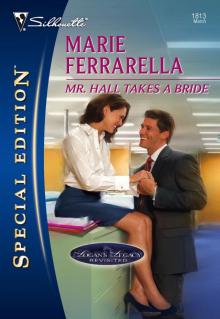 Mr. Hall Takes a Bride
Mr. Hall Takes a Bride Her Good Fortune
Her Good Fortune The Disenchanted Duke
The Disenchanted Duke Beauty and the Baby
Beauty and the Baby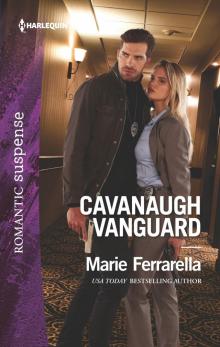 Cavanaugh Vanguard
Cavanaugh Vanguard In Bed with the Badge
In Bed with the Badge My Phony Valentine
My Phony Valentine The Rancher and the Baby
The Rancher and the Baby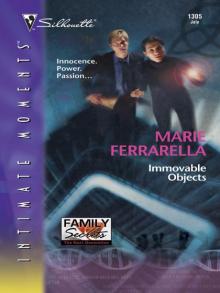 Immovable Objects
Immovable Objects Cavanaugh Reunion
Cavanaugh Reunion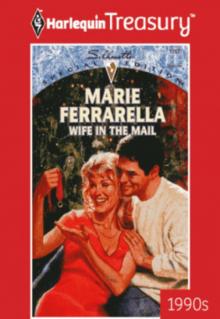 Wife in the Mail
Wife in the Mail A Hero in Her Eyes
A Hero in Her Eyes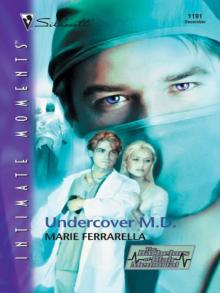 Undercover M.D.
Undercover M.D. Colton Undercover
Colton Undercover Found: His Perfect Wife
Found: His Perfect Wife Dr. Forget-Me-Not (Matchmaking Mamas)
Dr. Forget-Me-Not (Matchmaking Mamas) Loving the Right Brother
Loving the Right Brother Holiday in a Stetson: The Sheriff Who Found ChristmasA Rancho Diablo Christmas
Holiday in a Stetson: The Sheriff Who Found ChristmasA Rancho Diablo Christmas Colton Baby Rescue
Colton Baby Rescue Baby's First Christmas
Baby's First Christmas LASSOED BY FORTUNE
LASSOED BY FORTUNE The M.D. Meets His Match
The M.D. Meets His Match A Baby for Christmas
A Baby for Christmas His Forever Valentine
His Forever Valentine The Inheritance
The Inheritance The Woman Who Wasn't There
The Woman Who Wasn't There![[Kate's Boys 05] - A Lawman for Christmas Read online](http://i1.bookreadfree.com/i2/04/09/kates_boys_05_-_a_lawman_for_christmas_preview.jpg) [Kate's Boys 05] - A Lawman for Christmas
[Kate's Boys 05] - A Lawman for Christmas Husbands and Other Strangers
Husbands and Other Strangers A Match for Morgan
A Match for Morgan The Doctor's Guardian & Tempted By His Target
The Doctor's Guardian & Tempted By His Target The Offer She Couldn't Refuse
The Offer She Couldn't Refuse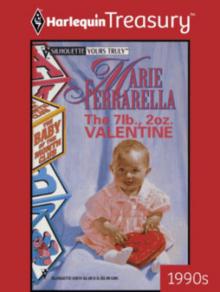 The 7 Lb., 2 Oz. Valentine
The 7 Lb., 2 Oz. Valentine Fixed Up with Mr. Right?
Fixed Up with Mr. Right? Husband: Some Assembly Required
Husband: Some Assembly Required Adding Up to Family
Adding Up to Family Cavanaugh or Death
Cavanaugh or Death Unwrapping the Playboy
Unwrapping the Playboy Becoming a Cavanaugh
Becoming a Cavanaugh Racing Against Time
Racing Against Time Christmastime Courtship
Christmastime Courtship A Billionaire and a Baby
A Billionaire and a Baby Ten Years Later...
Ten Years Later...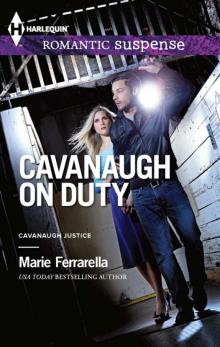 Cavanaugh on Duty
Cavanaugh on Duty Cavanaugh Hero
Cavanaugh Hero Finding Happily-Ever-After
Finding Happily-Ever-After The Prodigal M.D. Returns
The Prodigal M.D. Returns Mendoza's Secret Fortune (The Fortunes of Texas: Cowboy Country)
Mendoza's Secret Fortune (The Fortunes of Texas: Cowboy Country) Once Upon a Matchmaker
Once Upon a Matchmaker Diamond in the Ruff (Matchmaking Mamas Book 13)
Diamond in the Ruff (Matchmaking Mamas Book 13) Fortune's Just Desserts
Fortune's Just Desserts![[Kate's Boys 02] - The Bride With No Name Read online](http://i1.bookreadfree.com/i2/04/10/kates_boys_02_-_the_bride_with_no_name_preview.jpg) [Kate's Boys 02] - The Bride With No Name
[Kate's Boys 02] - The Bride With No Name The Agent's Secret Baby
The Agent's Secret Baby Doctoring the Single Dad
Doctoring the Single Dad Stand-In Mom
Stand-In Mom Diamonds and Deceptions
Diamonds and Deceptions The Bride Wore Blue Jeans
The Bride Wore Blue Jeans The Amnesiac Bride
The Amnesiac Bride Cavanaugh's Bodyguard
Cavanaugh's Bodyguard Brooding Angel
Brooding Angel The Once and Future Father
The Once and Future Father Cavanaugh in the Rough
Cavanaugh in the Rough Mother in Training
Mother in Training She’s Having a Baby
She’s Having a Baby Never Too Late For Love
Never Too Late For Love Callaghan's Way
Callaghan's Way Happy New Year--Baby!
Happy New Year--Baby! Diagnosis: Danger
Diagnosis: Danger Your Baby Or Mine?
Your Baby Or Mine? The Maverick's Return
The Maverick's Return Do You Take This Child?
Do You Take This Child? The Women in Joe Sullivan's Life
The Women in Joe Sullivan's Life The Second Time Around
The Second Time Around A Hero for All Seasons
A Hero for All Seasons